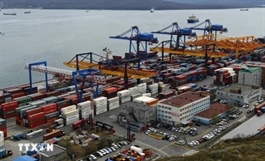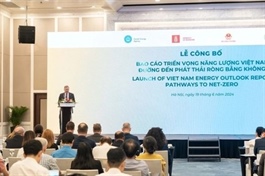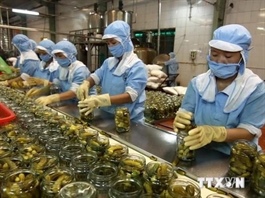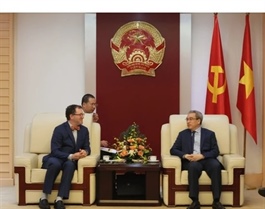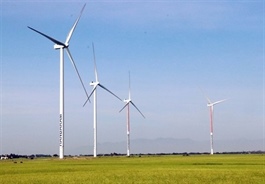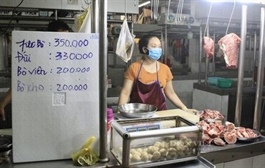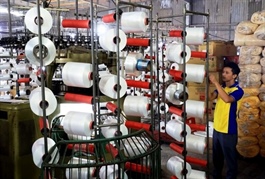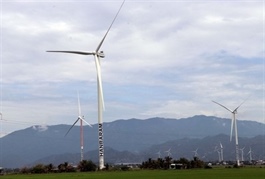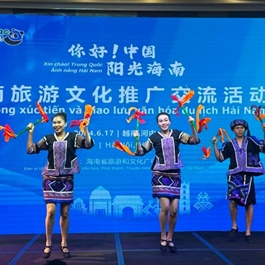Supporting industries seek newer policies
Supporting industries seek newer policies
Vietnam’s supporting industries are failing to meet set targets, with a tendency to rely too much on overseas vendors instead of developing domestic suppliers, which is leaving foreign investors hesitant to enter the market.

The Ministry of Industry and Trade (MoIT) last week said that after six years there had been mixed results regarding the target of supporting industries meeting at least 45 per cent of domestic production demand.
Domestically produced metal components have broadly met this target in the manufacturing of cars, motorcycles, and power and agricultural machines. However, industries such as electronics, IT, telecommunications, and speciality electronics have met demand with only 15 per cent of their domestic production, falling way short of the overall aim.
Ho Thi Kim Ngan, a National Assembly deputy for Bac Kan province, said that Vietnam’s supporting industry had about 1,500 businesses, mainly in mechanics, electricity and electronics, plastics, rubber, and chemicals. However, in 2023, the business’s health seriously declined with significant falls in revenue.
“Vietnam’s supporting industry enterprises have not yet grown enough to participate in the global production supply chain, especially foreign direct investment (FDI) manufacturers in Vietnam,” she said.
Meanwhile, if supporting industries do not grow, there will inevitably be a significant reliance on material imports, which will reduce the nation’s competitiveness and make it more difficult to maintain economic growth. Vietnamese supporting industry companies are currently struggling against competitors worldwide.
Nguyen Quang Huan, an NA deputy for Binh Duong province said, “Vietnam’s supporting industries are still weak and unable to meet domestic production needs. Some of Vietnam’s strong industries such as electronics, textiles, footwear, vehicle and motorbike assembly, etc. are heavily dependent on imported raw materials, which lead to high production costs, and low added value,”
Minister of Industry and Trade Nguyen Hong Dien said that despite the implementation of preferential policies, supporting industries still have many limitations. “State investment resources from the central to local levels are few and difficult to access, and often overlap with each other. Often conditions to enjoy incentives are quite strict and not suitable, making it very difficult for businesses to access and meet the requirements to enjoy the policy,” he said. “A limitation of Vietnam’s FDI attraction policy is that it is neither binding nor encouraging for foreign-invested enterprises (FIEs) to increase knowledge transfer to domestic enterprises.”
Most local suppliers are small- and medium-sized, and supporting industrial products with high-technology is still mainly provided by FIEs. To serve the needs of domestic production and assembly, Vietnam still imports a large value deficit of components and spare parts.
Nguyen Van Toan, vice chairman of the Association of Foreign-Invested Enterprises said, “What support can domestic enterprises provide to cooperate with foreign-led companies? I think it is necessary to build research and development centres for domestic enterprises. So far, any development has been supported by large domestic corporations capable of leading such changes. Therefore, if we want to develop, we need to issue more support policies soon.”
FIEs may have several satellites in Vietnam, but they genuinely need to raise the localisation ratio to guarantee competitive selling prices between them and to avoid relying too much on vendors, Toan added. “They urge Vietnam to establish more factories and promote the growth of the auxiliary sector. Goods must satisfy the requirements of both price and quality to be competitive,” he said.
Minister Dien added that it was necessary to review the legal system so that policies that have been issued can come to life, businesses can absorb them, and see growth from there.
Localities must also provide improvements to help these businesses find premises, infrastructure, and support in terms of capital, and human resource training. Dien emphasised the importance of revising the Foreign Investment Law and several related laws to draw in foreign investors. There must be a mechanism to bind, cooperation with domestic supporting industry enterprises.
“The MoIT will continue to advise on policy synchronisation, including research to develop a Law on key industries including mechanical manufacturing, processing, electronics, chemicals, and energy that are temporarily considered the foundation of Vietnam’s industry and the driving force for the country’s industrialisation and modernisation process,” Dien said.







